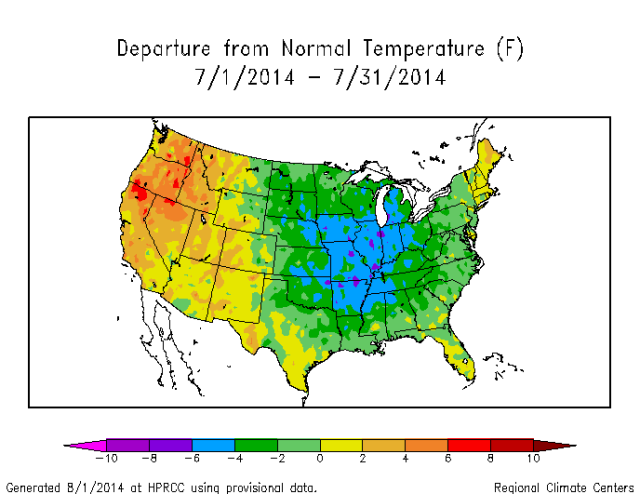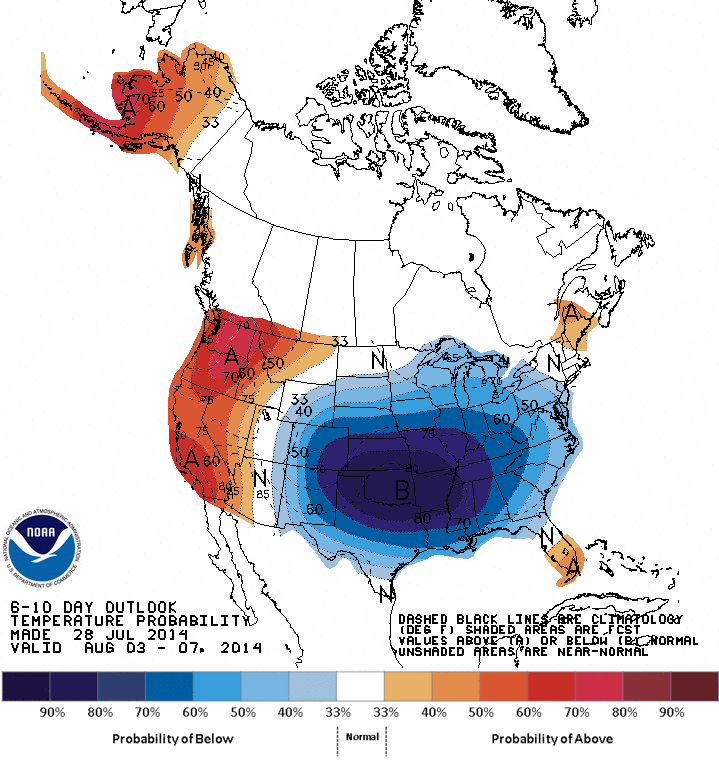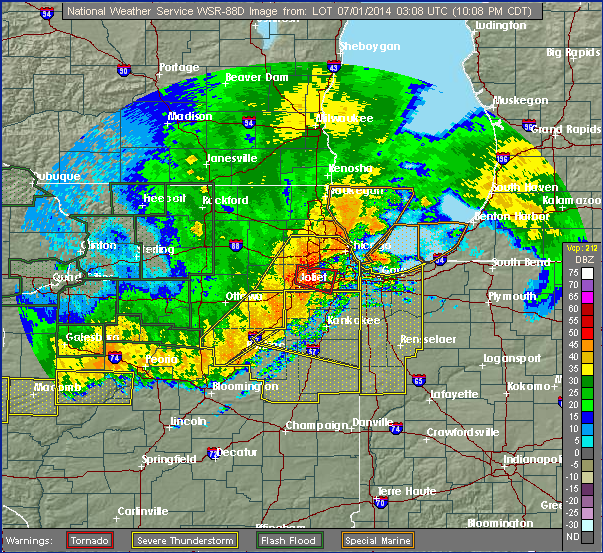Yep. As I feared, the Indians game last night got postponed, but not before the Tribe got ahead by one. And then:
In the moments shortly before the Tribe's game against the D-backs was postponed, [Cleveland players] Aviles, Kipnis and Chisenhall sprinted from the dugout, ran across the tarp and slid headfirst through the puddles and raindrops to the delight of the fans who remained. It was an entertaining ending to a game that was wiped out following a delay that lasted three hours and 40 minutes.
Cleveland's lone run came courtesy of an RBI double in the third inning by Kipnis, who no longer has that hit on his statistical record.
That may or may not have made him easily swayed by Aviles.
"I lost my double, so I was emotional. And an RBI," Kipnis said with a smirk. "I didn't know which way was up. I was easily influenced."
So, everything that we saw there yesterday...didn't count. Because in baseball, sometimes you win, sometimes you lose, and sometimes...it rains.
Regardless, thanks to the Cleveland Client for taking us to Progressive Field. And in no small irony, the tickets we used were from a previous rain-out, so if they want, the people who took us can go to the game today at 4:05 pm. Which—wait for it—might be rained out.
He thinks we should all use GMT instead:
[W]ithin a given time zone, the point of a common time is not to force everyone to do everything at the same time. It's to allow us to communicate unambiguously with each other about when we are doing things.
If the whole world used a single GMT-based time, schedules would still vary. In general most people would sleep when it's dark out and work when it's light out. So at 23:00, most of London would be at home or in bed and most of Los Angeles would be at the office. But of course London's bartenders would probably be at work while some shift workers in LA would be grabbing a nap. The difference from today is that if you were putting together a London-LA conference call at 21:00 there'd be only one possible interpretation of the proposal. A flight that leaves New York at 14:00 and lands in Paris at 20:00 is a six-hour flight, with no need to keep track of time zones. If your appointment is in El Paso at 11:30 you don't need to remember that it's in a different time zone than the rest of Texas.
Sigh.
It's even easier to get people to use International System measurements than to get them to understand the arbitrariness of the clock, but let's unpack just one thing Yglesias seems to have missed: the date.
Imagine you actually can get people in Los Angeles to use UTC. Working hours are 16:00 to 24:00. School starts at 15:45 (instead of ending then). In the summer, the sun rises at 12:30 and sets at 02:00.
Wait, what? The sun sets at 2am? So...you come home on a different day? That makes no sense to most people.
Yes, in a world where people are unwilling to give up their 128-ounce gallons and 36-inch yards in favor of 1000-milliliter liters and 100-centimeter meters, a world where ice freezing at 32 and boiling at 212 makes more sense than freezing at 0 and boiling at 100, a world where Paul Ryan is thought to be a serious person, we're not moving away from the day changing while most people are asleep.
And don't even get me started on the difference between GMT and UTC.
Last month tied the record for the coolest July in state history:
The statewide average temperature for July was 21.3°C in Illinois, which ties the record cool July of 21.3°C set back in 2009.
As this plot indicates, the observed range in July monthly temperatures in Illinois is 7°C. On another note, the July 2014 average temperature is based on preliminary data so it is very likely that we will break the tie with 2009 as more data arrives.
The state climatologist has a map:

So Illinois was the country's cool spot back in January and again in July. I have to say, it's a lot better to do that in July.
Climate outlooks for the U.S. are coalescing around a pleasantly cool summer in Chicago:

Illinois climatologist Jim Angel explains:
As we approach the end of July the statewide average temperature in Illinois is 21.4°C degrees, which currently puts it in second place for the coldest July on record.
Here is how the previous top 10 coldest July temperatures for Illinois looked and what happened in the following August.... In 8 out of the 10 cases, the following August was colder than average. However, two of those “colder” August’s were marginally so (1924 and 1996). The one spectacular reversal was in 1947, where August was 4.0°C degrees above average after the 3rd coldest July. Therefore there is a historical tendency for cooler weather to prevail into August.
After the brutal winter we had six months ago (three months ago?), most people in Chicago welcome July and August afternoons like this. I'm even wearing a jacket to the game tonight, while I'm saving a bundle on air conditioning.
Client deliverables and tonight's Cubs game have compressed my day a little. Here's what I haven't had time to read:
Now back to the deliverable...
Keep your pants on. I'm referring to the London Underground, which last week got "journalists" to copy and paste a story they ran five years ago. It turns out, the Tube is too hot:
It’s not fair to compare London’s cramped commuters to cattle; right now, livestock actually get the better deal. As temperatures in the U.K.’s capital push towards 32°C for the second week running, heat levels in London’s Tube and bus system have now risen above the EU limit at which it is legal to transport cows, sheep, and pigs. The highest recorded temperature on the network so far this year is 35°C, 5°C above the permissible 30°C for livestock.
I thought that sounded familiar. For comparison, here's the story from August 2009:
A map which reveals the hottest spots on London's underground system has been revealed to commuters.
The map of zones 1 and 2 shows temperatures over above 35°C have been recorded in some areas - making the trains officially unfit for transporting cattle.
The Central line had some of the worst spots, while the Bakerloo line also felt the heat when the map was compiled.
It turns out, I was in London in August 2009, and I remember really hating the temperature as the Circle Line got round to Tower Hill. Glad to see the city have kept some traditions going.
Imagine you're sitting on your front stoop, strumming your guitar, and Eric Clapton comes out of nowhere to give you some pointers.
That's about what happened to me today. Earlier this week, Jon Skeet (described by Scott Hanselman as "the world's greatest living programmer) noticed something I posted on the IANA Time Zone list, and asked me about the Inner Drive Time Zone library.
So I sent him the package.
And this afternoon, he sent me a benchmark that he wrote for it. Just like that.
Of course, the benchmark showed that my stuff was about 10% as fast as the Noda Time library, an open-source project he curates. So, having a couple of hours for "personal development time" available, I optimized it.
The specific details of the optimization are not that interesting, but I managed to more than double the library's performance by changing about ten lines of code. (It's now 20% as fast as Noda.) Along the way I exchanged about 10 emails with Skeet, because he kept making really crack suggestions and giving me valuable feedback about both my design and his.
That was cool.
Here's the semi-annual
Chicago sunrise chart
.
(You can get one for your own location at
http://www.wx-now.com/Sunrise/SunriseChart.aspx
.)
In the early part of July, we hardly notice sunrises and sunsets. Days are long, it's still light out at 9pm (in Chicago),
and we commute to work in broad sunlight. About a month from now we'll get a twinge when the sun sets at 8pm, and
then, faster and faster, we'll notice the days getting shorter and our morning commutes getting darker.
Meh. That's in a month. Let's just enjoy the daylight we have now.
|
Date
|
Significance
|
Sunrise
|
Sunset
|
Daylight
|
|
2014
|
|
2 Jul
|
8:30pm sunset
|
05:20
|
20:30
|
15:10
|
|
16 Jul
|
5:30am sunrise
|
05:30
|
20:24
|
14:54
|
|
9 Aug
|
8pm sunset
|
05:53
|
19:59
|
14:06
|
|
16 Aug
|
6am sunrise
|
06:00
|
19:50
|
13:50
|
|
29 Aug
|
7:30pm sunset
|
06:13
|
19:30
|
13:16
|
|
14 Sep
|
6:30am sunrise
|
06:30
|
19:02
|
12:32
|
|
15 Sep
|
7pm sunset
|
06:31
|
19:00
|
12:22
|
|
22 Sep
|
Equinox
,
21:29 CDT
|
06:38
|
18:48
|
12:10
|
|
25 Sep
|
12-hour day
|
06:42
|
18:43
|
12:01
|
|
3 Oct
|
6:30pm sunset
|
06:50
|
18:29
|
11:39
|
|
12 Oct
|
7am sunrise
|
07:00
|
18:14
|
11:14
|
|
21 Oct
|
6pm sunset
|
07:10
|
18:00
|
10:50
|
|
1 Nov
|
Latest sunrise until 1 Nov 2016
Latest sunset until Mar 5th
|
07:24
|
17:45
|
10:21
|
|
2 Nov
|
Standard time returns
Earliest sunrise until Mar 2nd
|
06:25
|
16:44
|
10:19
|
|
6 Nov
|
6:30 sunrise
|
06:30
|
16:39
|
10:09
|
|
15 Nov
|
4:30pm sunset
|
06:41
|
16:30
|
9:49
|
|
2 Dec
|
7am sunrise
|
07:00
|
16:21
|
9:20
|
|
8 Dec
|
Earliest sunset of the year
|
07:06
|
16:20
|
9:13
|
|
21 Dec
|
Solstice
,
17:03 CST
|
07:15
|
16:23
|
9:07
|
|
2015
|
|
4 Jan
|
Latest sunrise until Oct 29th
|
07:19
|
16:33
|
9:14
|
|
28 Jan
|
5pm sunset
|
07:08
|
17:00
|
9:53
|
|
5 Feb
|
7am sunrise
|
07:00
|
17:11
|
10:11
|
|
20 Feb
|
5:30pm sunset
|
06:40
|
17:30
|
10:50
|
|
27 Feb
|
6:30am sunrise
|
06:29
|
17:39
|
11:09
|
|
7 Mar
|
Earliest sunrise until Apr 12th
Earliest sunset until Oct 30th
|
06:17
|
17:48
|
11:31
|
|
8 Mar
|
Daylight savings time begins
Latest sunrise until Oct 25th
Earliest sunset until Sep 22nd
|
07:15
|
18:49
|
11:34
|
|
17 Mar
|
7am sunrise, 7pm sunset
12-hour day
|
06:59
|
19:00
|
12:00
|
|
20 Mar
|
Equinox
17:45 CDT
|
06:54
|
19:03
|
12:08
|
|
4 Apr
|
6:30am sunrise (again)
|
06:29
|
19:20
|
12:50
|
|
13 Apr
|
7:30pm sunset
|
06:14
|
19:30
|
13:15
|
|
22 Apr
|
6am sunrise
|
06:00
|
19:40
|
13:39
|
|
11 May
|
8pm sunset
|
05:35
|
20:00
|
14:25
|
|
16 May
|
5:30am sunrise
|
05:30
|
20:05
|
14:35
|
|
14 Jun
|
Earliest sunrise of the year
|
05:15
|
20:28
|
15:12
|
|
20 Jun
|
Solstice
11:38 CDT
8:30pm sunset
|
05:16
|
20:30
|
15:14
|
|
27 Jun
|
Latest sunset of the year
|
05:18
|
20:31
|
15:12
|
You can
get sunrise information
for your location
at wx-now.com.
Wow, last night's rain was officially epic:
The rate at which rain fell across the Midwest Monday was extraordinary in a number of locations.
Highland, Park’s 98 mm fell between 6 and 11:59 p.m. In just a fraction of that period, Midway Airport logged 20 mm. It fell in just 7 minutes! Lake In the Hills , IL received 66 mm in just 2 hours.
But rainfall rates west in Iowa were even more dramatic. Williamstown received 133 mm in the day’s 3 waves of rainfall while 114 mm of Muscatine, Iowa’s 207 mm of rain fell between 7 and 8 p.m.
Yes, 207 mm fell on a town in Iowa. That's 207 liters of water per square meter of ground, which works out to 8,280 tons—almost 8.3 million liters—of water per Chicago city block. (A Chicago city block is 200 meters to a side.)
Ah. My air boat has arrived. Off to work now...
I've written about weather for a while. And despite my raising the alarm about anthropogenic climate change, I'm not given to hyperbole. But, wow. This is going on in Chicago right now, and it's epic:

Seriously, I think one of my neighbors just ushered a pair of squirrels into the boat he built today...
Play us out, EFO: